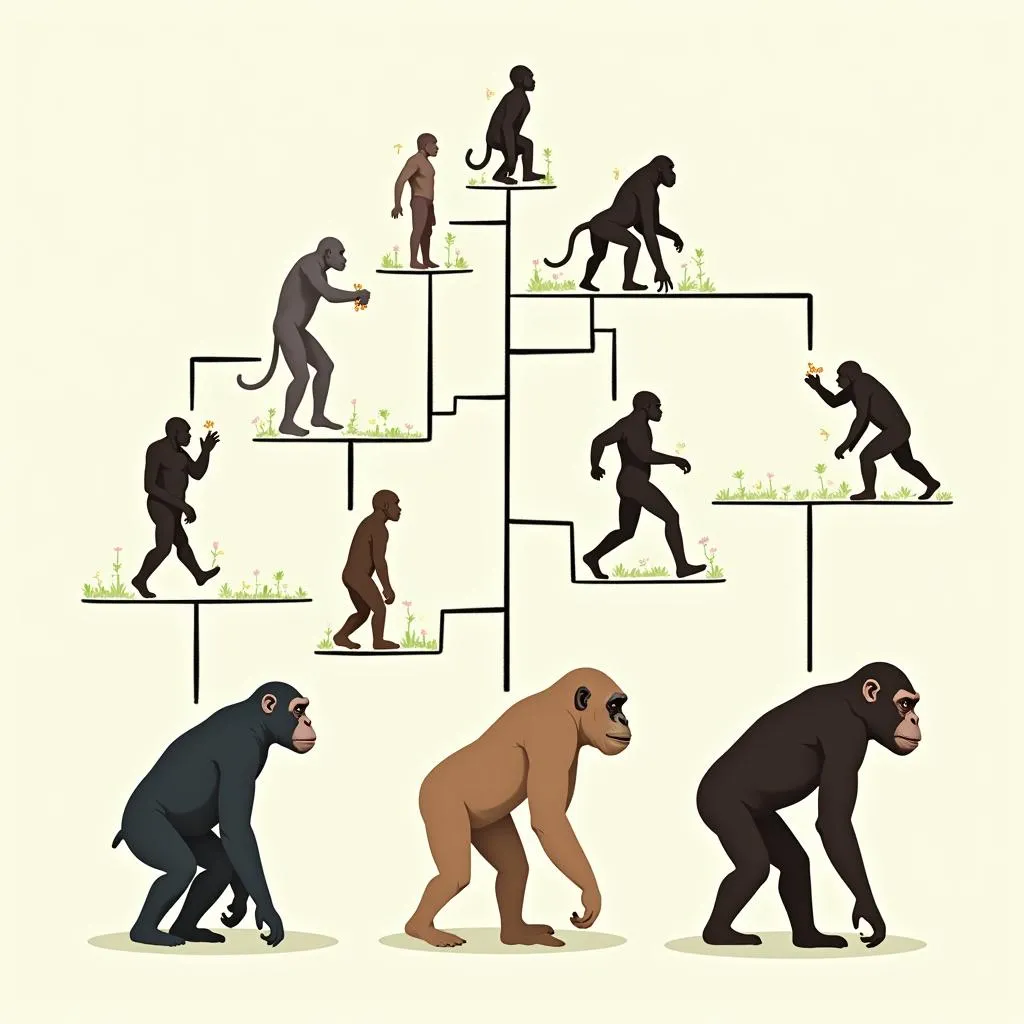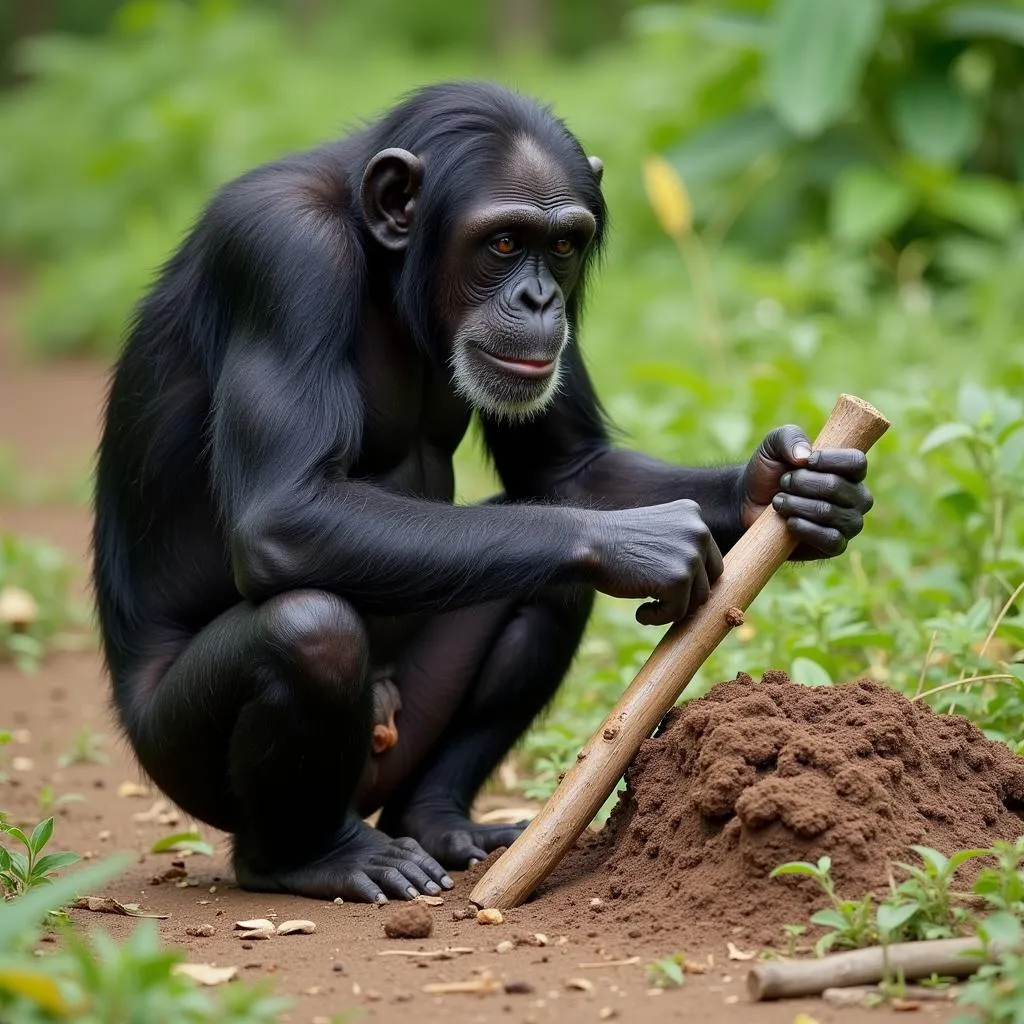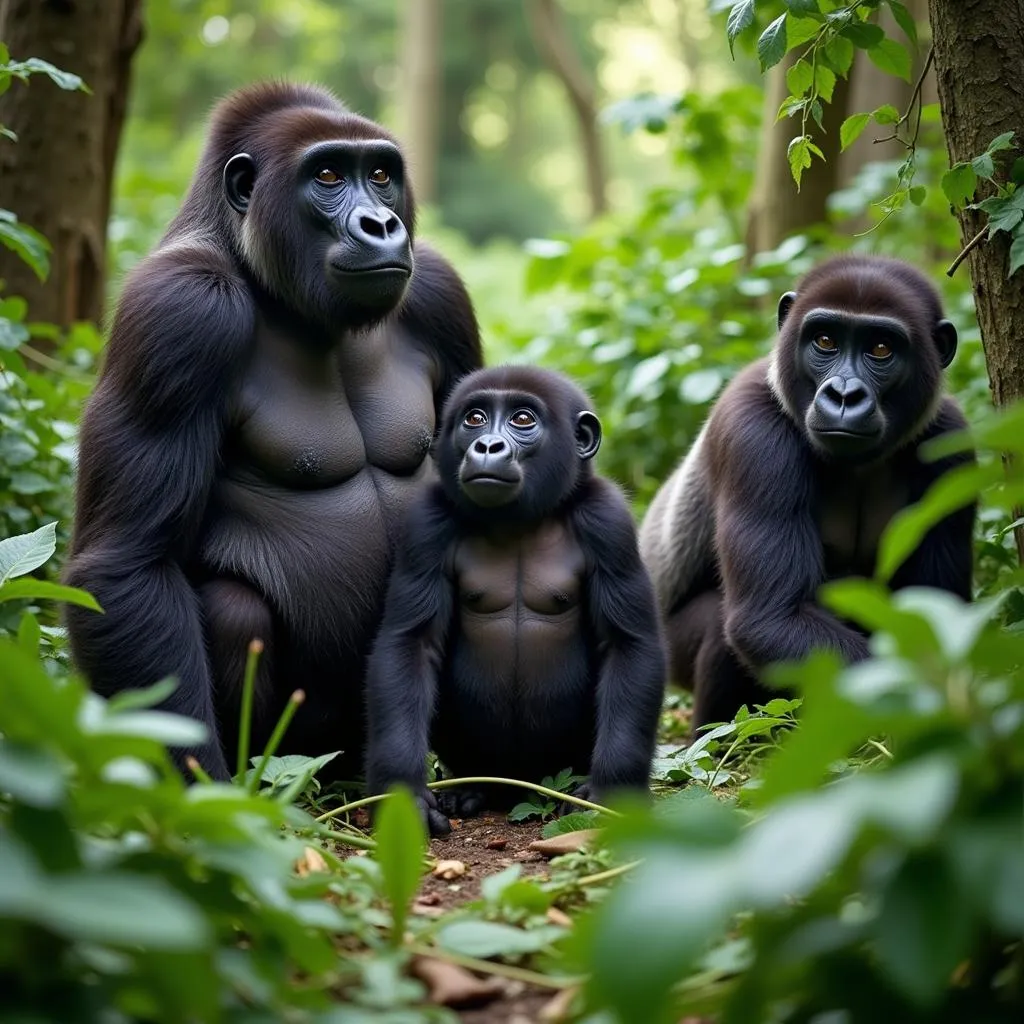African Apes and Humans: Exploring Our Shared Ancestry
Humans share a deep and fascinating evolutionary history with African apes. This kinship is evident not only in our physical characteristics but also in our shared behaviors and social structures. Delving into the world of gorillas, chimpanzees, and bonobos reveals a great deal about our own origins and the unique trajectory of human evolution.
 African Apes Family Tree
African Apes Family Tree
Unraveling the Genetic Ties
Scientific evidence overwhelmingly points to a shared ancestry between humans and African apes. Genetic studies have revealed that we share a surprising percentage of our DNA with these primates: about 98.7% with chimpanzees and bonobos, and slightly less with gorillas. This genetic proximity makes them our closest living relatives in the animal kingdom. These similarities are not merely coincidental; they speak to a shared evolutionary journey that unfolded millions of years ago.
A Glimpse into Shared Behaviors
Beyond genetics, the similarities between humans and African apes extend to behavior. Chimpanzees, for instance, have been observed using tools, engaging in complex social interactions, and displaying a range of emotions. These behaviors, once thought to be uniquely human, suggest that the seeds of our own social complexity and intelligence were sown long ago in our shared evolutionary past.
 Chimpanzee Using a Tool to Extract Termites
Chimpanzee Using a Tool to Extract Termites
Distinct Evolutionary Paths
While we share a common ancestor with African apes, our evolutionary paths diverged millions of years ago, leading to the distinct species we are today. Understanding the factors that drove this divergence—such as environmental changes, dietary adaptations, and social pressures—is crucial for comprehending the development of human-specific traits like bipedalism, language, and complex tool use.
Conservation: Protecting Our Primate Relatives
Today, African apes face numerous threats, including habitat loss, poaching, and disease. It is our responsibility to protect these intelligent and fascinating creatures, not only for their own sake but also for the invaluable insights they provide into our own evolutionary journey. By supporting conservation efforts and promoting sustainable practices, we can help ensure the survival of these remarkable primates for generations to come.
 Mountain Gorilla Family Group in Dense Rainforest
Mountain Gorilla Family Group in Dense Rainforest
Conclusion: Celebrating Our Shared Heritage
The study of African Apes And Humans is a journey into our own past. It reveals the interconnectedness of all life on Earth and highlights the remarkable power of evolution in shaping diversity. By understanding our shared ancestry, we gain a deeper appreciation for the place of humans within the natural world and our responsibility to protect the planet and its incredible biodiversity.
FAQ
1. What is the closest living relative to humans?
Chimpanzees and bonobos are our closest living relatives, sharing approximately 98.7% of our DNA.
2. When did humans and African apes last share a common ancestor?
The last common ancestor of humans and chimpanzees (and bonobos) lived around 6 to 8 million years ago.
3. Do African apes use language like humans?
While African apes communicate through vocalizations and gestures, they do not possess language abilities as complex as those of humans.
4. Why is it important to conserve African apes?
African apes are crucial for maintaining healthy ecosystems and provide valuable insights into human evolution.
5. How can I help protect African apes?
You can support reputable conservation organizations working to protect African apes and their habitats. Spreading awareness about their plight is also essential.
Do you have other questions?
For any further assistance, please feel free to reach out to us.
Contact Us:
Phone: +255768904061
Email: [email protected]
Address: Mbarali DC Mawindi, Kangaga, Tanzania
Our dedicated team is available 24/7 to assist you.